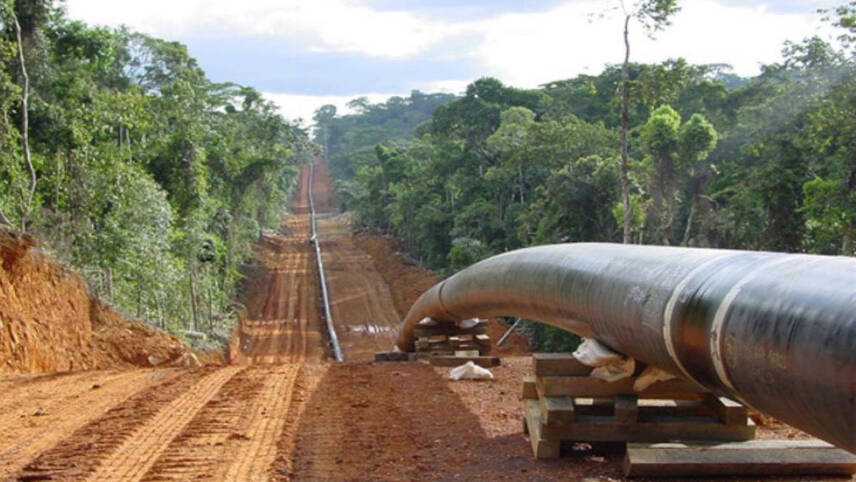Register for free and continue reading
Join our growing army of changemakers and get unlimited access to our premium content

Image: Oxfam in Uganda, depicting the crude oil pipeline
That is according to Carbon Tracker. The think-tank has today (8 December) published a new analysis of investments made by oil and gas majors across the world since the start of 2021, and their investment plans for 2023 and beyond. Data is taken from corporate reports and from Rystad Energy.
It assessed whether the investments were aligned with the global transition to net-zero by 2050, using the International Energy Agency’s (IEA) model scenario. It also assessed whether investment was aligned with either of the Paris Agreement’s two temperature pathways, 2C and 1.5C.
A headline finding is that, during 2021 and the first quarter of 2022, the sector invested $58bn in oil and gas capacity that will only be needed if global demand grows to the point where it will, ultimately, push the global temperature increase past the 2.5C mark. Projects singled out as the worst offenders in this category include TotalEnergies’ development of the Lake Albert oil field in Uganda to supply the East Africa Crude Oil Pipeline (EACOP) and Woodside’s development of two interlinked liquid natural gas (LNG) facilities in Western Australia.
2.5C is the temperature trajectory forecast by the UN based on the climate commitments and green policy packages of national governments. However, climate scientists have been clear that warming beyond 1.5C will severely impact the natural environment, human health and wellbeing and the economy.
A total of $166bn of investment in new oil and gas fields was approved in the 15-month period covered by the analysis. Almost all of this investment is not consistent with the Paris Agreement’s 1.5C target, Carbon Tracker stated. Against a 2019 baseline, Chevron is set to increase production by 16% by 2026 and ExxonMobil is set to increase production by 8% by 2027. TotalEnergies’ production in 2030 is on course to be 13% higher than in 2019.
BP is singled out as the only energy major with a target to reduce both oil and gas production this decade. It is planning to reduce production by at least 40% by 2030, compared with 2019 levels.
Call to investor action
Carbon Tracker’s report is intended for the finance sector, with some stark warnings for finance firms that wish to claim alignment with the Paris Agreement’s temperature trajectory targets but continue investing in firms planning oil and gas expansion.
Report co-author Mike Coffin, Carbon Tracker’s head of oil, gas and mining, said: “Investors must scrutinise company spending plans as investments in many new oil and gas projects lock in future emissions that are incompatible with Paris. Ultimately, companies are committing tens of billions to projects that are unlikely to break even if governments deliver on their climate pledges, and investors must be aware of the implications.”
Back in October, the world’s largest alliance convening financial institutions on climate, the Glasgow Financial Alliance for Net-Zero (GFANZ), cut tts ties with the UN-backed Race to Zero campaign after it changed its minimum requirements for participation.
The Race to Zero announced earlier this year its plans for increasing its minimum participation requirements, raising questions about whether financial sector participants would be able to increase the level of detail and ambition in their climate plans accordingly. Concerns were raised by organisations including ShareAction, Global Witness, Sierra Club and 350.org over the continued support for fossil fuels of many major players in the finance sector, out of alignment with the new Race to Zero requirements.
GFANZ, which represents members with $153+trn of assets under management, moved to drop Race to Zero partnership as a mandatory requirement for members, making this an optional but “encouraged” choice. The decision raised concerns about greenwashing in the financial space.


Please login or Register to leave a comment.